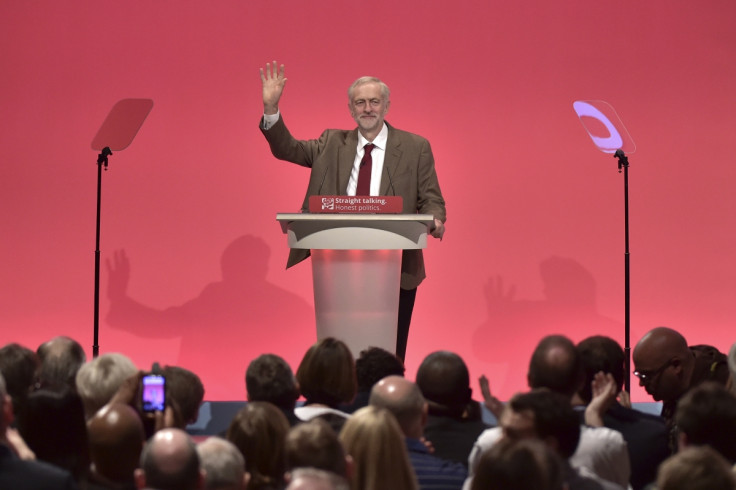Jeremy Corbyn will need more than rhetoric to challenge David Cameron's Tories

Whatever Jeremy Corbyn had said in his keynote speech to Labour conference, yesterday's speech (28 September) by shadow chancellor John McDonnell would have been a tough act to follow. Not because McDonnell's speech set conference alight but because he appeared to row back on so much of the anti-austerity rhetoric that propelled Corbyn to victory in the Labour leadership election.
Even before McDonnell's speech, accusations of "betrayal" were in the air. On Sunday (27 September), the shadow chancellor told the Observer that Labour would support the Tories' "fiscal charter" – committing the government to delivering an overall surplus by 2019-20 and to running an overall budget surplus in "normal times" – and that Labour would "live within our means". Similarly, during his speech, McDonnell promised "every policy we propose will be rigorously tested and costed".
Unlike last year's speech by Ed Miliband in which the Labour leader disastrously forgot to mention the deficit, Jeremy Corbyn's speech passed off without any major gaffes
This sounds an awful lot like the sort of thing the Corbynistas were dismissing as "Tory-lite" during the Labour leadership contest. The difference – and it is a significant difference – is McDonnell plans to reduce the deficit through economic growth rather than spending cuts.
This is in fact a profoundly sensible approach. For all his bluster about the need for austerity, George Osborne's success in reducing the deficit is largely down to the return of economic growth. For the first two years of the last parliament, while the economy was flatlining, the deficit remained high. It started to come down only when the economy began to grow in 2013 and tax receipts subsequently went up.
Thus taking the deficit seriously, but not buying into the narrative that the only way to pay it off is through swinging cuts, is not some crackpot hard-left idea; it is actually fairly straightforward Keynesian economics.
Yet for all the apparent rowing at the back of the Corbyn-led Labour Party on some of its rhetoric in the leadership campaign – Corbyn has already sought to compromise on Trident, free schools and nationalisation of the railways – this new pragmatism could hold as many dangers for Labour as the radicalism espoused by Corbyn on the campaign trail.
For all the criticism and accusations of economic "extremism" thrown at the Corbyn team both before and after the leadership election, one thing he did have going for him was clarity. Clarity alone is not an election-winning formula by any means but it is a necessary component of success. Despite the sense that Corbyn and McDonnell are adopting a sensible approach in seeking to portray themselves as economically credible, the danger is that they dilute the clear anti-austerity message to the point where the public have little idea where Labour stands.
'Open debate'
Corbyn could face a similar problem as a result of the new fetish in the Labour Party for "open debate". Much of the current talk about "party democracy" has more to do with expediency than genuine conviction. Corbyn and his team must talk about "inclusiveness" and "different viewpoints" because otherwise he would have struggled to form a shadow cabinet. Such is the paucity of Corbynite MPs in the Parliamentary Labour Party, message discipline based on a left-wing platform was always going to prove a colossal ask.
But again, the new emphasis on a plurality of views risks blurring the message. Labour's new motto of "straight talking, honest politics" may ultimately end up sounding like a bitter irony.
But still, Corbyn's unexpected pragmatism has ensured the Labour conference has not – or at least has not quite – descended into bitter squabbles between the party's left and right flanks. Considering the grim predictions of internecine warfare prior to the conference, this is no mean feat.
Unlike 2014's speech by Ed Miliband in which the Labour leader disastrously forgot to mention the deficit, Corbyn's attempt passed off without any major gaffes. The 66-year-old often surprises people in that he is a decent public speaker; unsurprising really, considering he has spent 30 years stood on platforms speaking at various protests. That said, the speech lacked focus and meandered across a wide range of issues instead of cementing a central message.
Corbyn said today that he was elected to pursue a "kinder politics" to achieve a "caring society". This is conventional Labour territory; but as with the manifesto Miliband went into the May general election with, the party's success under Corbyn will likely rest on improving its image in the eyes of the public on those areas where it is currently weak: defence, welfare, immigration and the economy.
The Tories have started to move into Labour territory in areas such as the living wage and low pay, and if it is to win the general election in 2020, Labour will have to strengthen its offering on traditional Conservative territory. Can a Corbyn-led Labour Party do that? Despite a conference that in many respects exceeded expectations, I have my doubts.
© Copyright IBTimes 2025. All rights reserved.






















